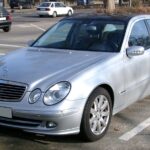Are European Cars Reliable? Which Ones are the Best?
Out of 77 million cars produced in 2020, more than 10 million came out of Europe. Cars manufactured by European automakers account for approximately 14% of the world’s automobile production.
So, the question is are European cars reliable? It is a common myth that the majority of European cars are sold in Europe due to higher taxes imposed on imported cars. That’s the reason behind high sales numbers. Otherwise European cars aren’t reliable at all.
In this article, we will critically analyze the general reliability of European brands and cover all that’s there to know about European cars.

What European Car Brands are There?
Several countries in Europe manufacture automobiles. The majority of the European car market is occupied by their cars. These countries include Germany, UK, Italy, France, Sweden, Spain, and the Czech Republic. The most renowned brands of these countries are given below:
Germany:
- Mercedes-Benz
- Porsche
- Volkswagen
- BMW
- Audi
United Kingdom:
- Aston Marin
- Bentley
- Rolls Royce
- Land Rover
- Jaguar
- Mini
- McLaren
France:
- Peugeot
- Citroen
- Renault
- Bugatti
Italy:
- Fiat
- Alfa Romeo
- Maserati
- Ferrari
- Lamborghini
Sweden:
- Volvo
- Saab
Spain:
- Seat
Czech Republic:
- Skoda
Also read: Top 5 Countries that Make the Most Reliable Cars
Are European Cars Reliable?
European brands that target mass markets are more successful at producing reliable cars. These brands include Volkswagen, Volvo, Renault, Fiat, and Peugeot. In opposition, the brands that are known to produce luxury segment cars fail to provide sustainable reliability. Brands like Porsche, BMW, Maserati, Mercedes-Benz, Rolls Royce, Aston Martin, and Audi are rated worst in terms of reliability.
European cars are divided into way too many sub-sets. It would be unfair to generalize the reliability argument for cars belonging to all segments. Some European auto manufacturers produce mass segment cars, some produce luxury and business segment cars, and some are into the production of exotic supercars.
Many European brands are known for the production of extravagant supercars. Brands like Ferrari, Lamborghini, Bugatti, and Koenigsegg can cost you millions of dollars. On top of that, a million-dollar car also cost you hundreds and thousands of dollar in repairs and maintenance. But these things come complementary with exotic supercars.
Trending Video: How to Easily Bring Back to Life any Old Car Battery and Save Tons of Money (click to watch)
The normal definition of reliability is to be long-lasting and being less problematic. The dynamics of reliability change for supercars. People buy these due to their premium brand value and dazzling features. Hence, most of the European car brands don’t fall in the category where we have to judge their reliability. The luxurious image projected by these exquisite supercars is enough to justify their purchase.
You will see this constant comparison going further in this article that among different segments of European cars breakdown frequency, maintenance cost, resale values, and quality are variable.
Do European Cars Break Down Often?
Most of the European car brands break down very often. They tend to be problematic and require more maintenance. European cars are no way near to Japanese and Korean cars when it comes to reliability. They even lag behind American cars in regard to the breakdown frequency.
Mass-targeted cars like Volkswagen and Peugeot have improved a lot in terms of reliability in recent times. They have produced cars that are not only the most reliable in Europe but also the most reliable ones in the world. In 2018, Peugeot 3008 was ranked as the most reliable on-road car in a survey by J.D Power. The car received an overall satisfaction ratio above 93.8%.
But such cars are an exception. The broader picture comes to light when you consider Audi, BMW, and other luxury cars. These cars pose more than 200 problems per 100 vehicles on average which is 30% above the industrial average for defects. It is also about 100% above the figure of 110 problems per 100 vehicles for Japanese and Korean cars.
Are European Cars Expensive to Fix?
Where most of the luxury European brands can cost you thousands of dollars in maintenance, the repair and maintenance of economy sector cars is way cheaper. The average maintenance cost of brands like Volkswagen, Renault, and Peugeot is less than $1,000. These prices are highly competitive since the cost of maintaining a highly reliable Japanese or Korean car is also around $500.
On the other hand, the regular checkup and oil change of a Porsche can cost $600. This is the average maintenance cost of a Toyota for the entire year. And a Bugatti or Lamborghini can cost more than 100,000 dollars in maintenance for the whole year. Mind you that this cost is exclusive of any major repairs, to account for that you can add another hundred thousand dollars to this. You can buy not one, not two but at least 7 Toyota Yaris for this amount of money. So, yes European cars are expensive to fix.
Also read: 5 Reasons Why Europeans Hate Automatic Transmission
Do European Cars Rust?
European cars have the best resistance against all kinds of weather. They are not prone to rust very often. Most European cars are made from hot-dip galvanized steel and there are very slim chances of rusting. Since Europe faces harsh weather in winter so cars have superior exterior coating in order to prevent them from storms and snow.
Premium German automobile brand Porsche is in fact the pioneer of using galvanized panels in the construction of cars. Porsche was the first brand to employ galvanizing techniques to combat corrosion. European brands provide extended coating warranties as well.
This is the area where European cars take lead over Japanese ones. Since Japan doesn’t use salt to melt ice on roads so manufacturers don’t bother applying extra protective layers to combat rusting. On the other hand, superior coatings make European cars are highly resistant to corrosion.
Do European Cars Depreciate Fast?
Europeans are best at producing luxury and economy segment cars that hold their values. Volkswagen has the best resale value among economy sector cars. On the other hand, Porsche is the champion of resale among fancy sports cars.
Most cars that come out of Europe depreciate very slowly. This is the reason behind the mega-market of used cars in Europe. Volkswagens are known to retain 75% of their value after 3 years of operation. At this point, 83% of the car’s useful life is remaining.
Porsche coupe 911 is the best performing sports car on the depreciation scale. It retains more than 62% of its value even after 5 years. These are remarkable figures for a luxury segment sports car.
Are European Cars Good Quality?
The quality of European vehicles was falling in the past decade but it is on the rise again. Still, European brands have to do a lot of catching up. The latest Swedish, British, and Czech cars are up to the mark with their quality. But German, Italian, and French cars lack in providing the consistent value of money.
Cheaper American and Japanese cars were flooding the auto markets in the last decade. In order to compete with these cars, Europeans had to cut their manufacturing costs. This led to the compromised quality of elements in German, Italian, and French cars.
Do European Cars Have a Good Performance?
European cars have a reputation for having good performance. Porsche, Bugatti, Ferrari, and Lamborghini are known to produce some of the most powerful cars in the world. These cars include:
- Porsche 918 Spyder with 875 hp
- Porsche Taycan Turbo S Cross Turismo with 750 hp
- Lamborghini Murcielago-6.5-liter V12 engine with output 572 hp
- Bugatti EB110-3.5 L Bugatti quad-turbocharged V12 with 553 hp
- Ferrari F12 TdF-770-horsepower naturally aspirated V-12
- Peugeot 907 with 500 hp
European cars are equipped with extremely powerful engines. Again the reason behind it is the hilly and mountainous roads of Europe. Which requires a car to be powerful. In addition, if there is one thing that all expensive and luxury cars have in common is that they have a superior engine and better performance.
Also read: Japanese vs European Cars Comparison (Reliability, Price, etc.)
Are European Cars Safe?
European cars are generally considered extremely safe for on-road driving. Most of the German, French, British and Swedish cars have been awarded 5-star by Euro NCAP (the central regulatory authority of Europe to ensure a certain level of safety in cars).
European cars are jam-packed with high-end features. Automakers left no stone unturned to ensure the driver and passenger safety. European cars are equipped with standard safety tech and hardware. 360-degree coverage of airbags, lane assist, brake assist, and collision warning are common safety features included in European cars.
Which European Cars Brands are the Best?
In terms of reliability, Volkswagen, Volvo, and Peugeot are considered the best car brands from Europe. Cars of these brands are known to last long and they require the least maintenance.
Volkswagen: Volkswagen is the best example of cost, performance, and reliability optimization. It is known to provide the best performance against considerable cost. Volkswagen is the largest German and European brand. It has scored 3.5 out of 5 for reliability. Apart from the slight powertrain issues, Volkswagen cars are user-friendly and inexpensive to maintain.
Best Cars: Volkswagen Jetta, Golf, Tiguan
Volvo: Volvo has emerged as the worldwide leader of luxury cars with a cheaper price tag. Volvo cars offer powerful engines. They are known to have sleek exteriors and spacious cabins. The interior is all set to give the vibe of a luxury segment car with high-end features.
Best Cars: Volvo S 70, S 60, XC 90
Peugeot: Peugeot has risen in the ranks of reliable cars very quickly. Their cars are reliable and long-lasting. The reliability index put Peugeot in the 14th spot, but they are more dependable than that. Peugeot needs to work on making cheaper spare parts, other than that they are doing remarkable in producing high-quality cars.
Best Cars: Peugeot 106, 308, 206
References:
acea.auto, carlogos.org, carfinance247.co.uk, carleasespecialoffers.co.uk, quora.com, mycarforum.com, peugeot.co.za, connexionfrance.com, koboguide.com, porschewestpalmbeach.com, pistonheads.com, rennlist.com, motor1.com, stevesimports.com, motorandwheels.com, businessinsider.com, presskit.porsche.de, encycarpedia.com, quora.com, automobile.com, jamesedition.com, carbuzz.com, motortrend.com, whatcar.com, moneyinc.com, newsroom.porsche.com






